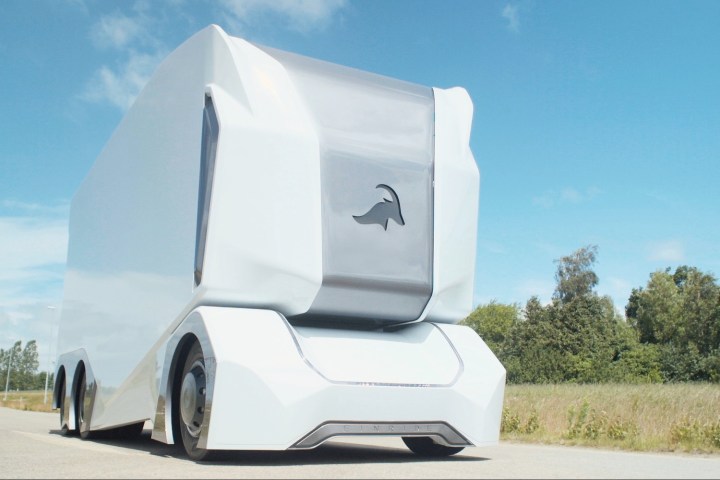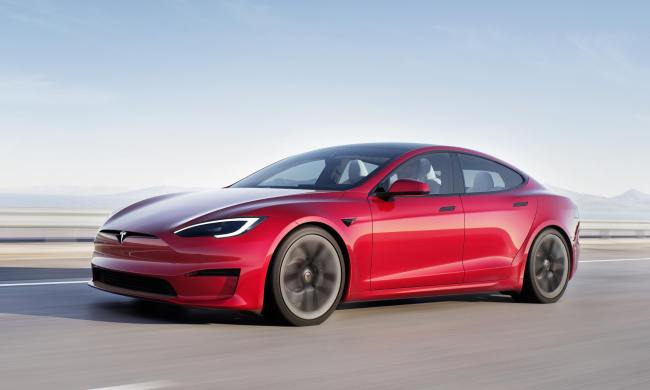
Einride’s T-Pod does not have room onboard for a human driver. It is a windowless box on wheels, powered by electric motors. The truck is about 23 feet long and can carry 15 standard cargo pallets, according to Einride. It weighs 20 tons fully loaded. Its power comes from a massive 200-kilowatt-hour battery pack, providing up to 124 miles of driving per charge, Einride says.
Even without a human driver onboard, though, the T-Pod will not be autonomous all of the time. It will drive itself unassisted on highways, but a human operator will take over via remote control in cities and other more complex environments where the truck’s systems might not be up to the job.
Einride has a fairly aggressive timetable for the T-Pod. It wants to deliver the first truck to a customer this fall, according to Engadget. By 2020, it plans to have 200 trucks operating on a designated route between the Swedish cities of Gothenburg and Helsingborg, carrying up to 2 million pallets of cargo per year.
That means Einride could leapfrog companies like Uber, which has not partnered with a vehicle manufacturer for its autonomous-truck tech, or Waymo and Amazon, which have expressed interest in self-driving trucks but have not launched development programs yet. Volvo is testing autonomous commercial trucks, including a self-driving garbage truck.
But to get the T-Pod on the road, Einride will need to develop its own manufacturing infrastructure, which is not exactly easy to do. It must also convince regulators and the general public that having 20-ton vehicles on the road with no human drivers is a good idea. The public is already somewhat uneasy about self-driving cars, so it is hard to say how people will react to a driverless vehicle like the T-Pod.
All autonomous vehicles face regulatory questions and those questions will be even more pointed in the heavily regulated trucking industry. Truckers themselves might also oppose autonomous vehicles as a potential threat to their jobs, creating an additional challenge for the companies trying to deploy them.


